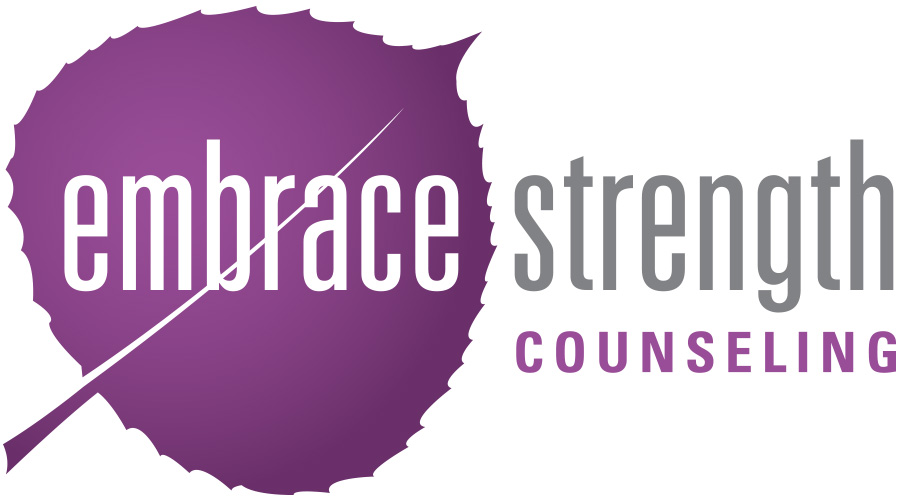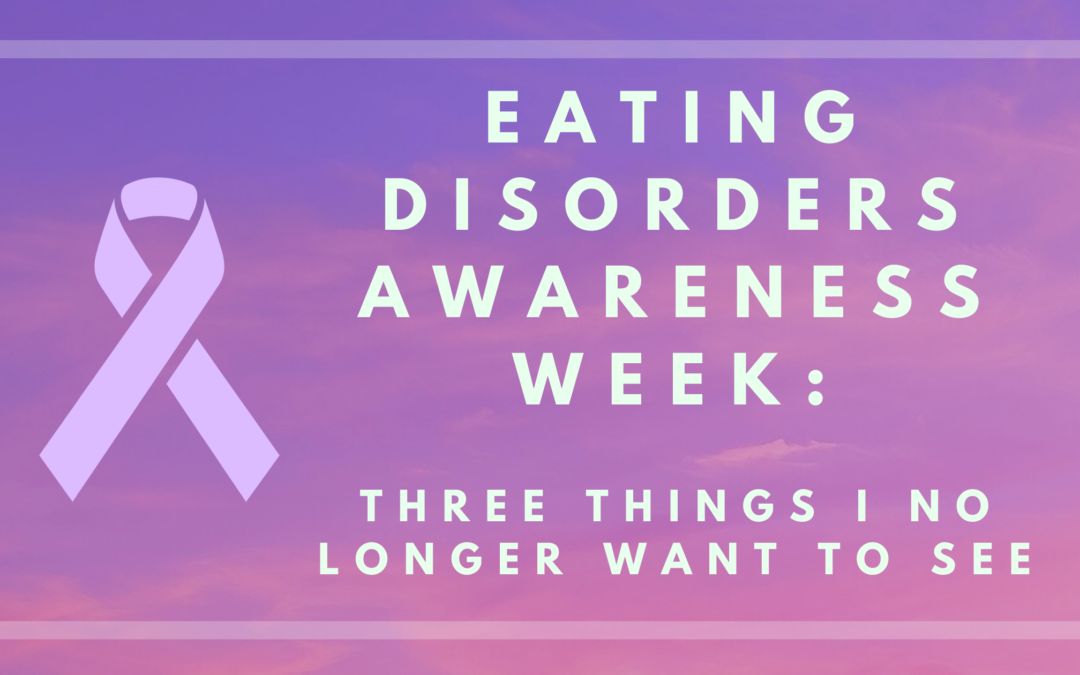Eating Disorders Awareness Week (EDAW) is an annual campaign focused on educating the public about feeding and eating disorders. The theme for this year is “Get in the Know” because public awareness is critical in recognizing, supporting, and effectively treating eating disorders.
After working in the eating disorder field for over five years, I have noticed many themes and patterns in my clients and how their eating disorders develop. In this blog post I will delve into three things that I often hear from clients that contribute to a poor relationship with food and body. These are three things that I wish I no longer had to see or hear about from clients.
1. Doctors and other professionals telling clients that they are “fine.”
I cannot count how many times a client has shared this sentiment with me. Oftentimes, if a client’s BMI is considered “normal,” they are made to believe that they are not really struggling and it is not worth it for them to get help. In reality, most individuals who struggle with eating disorders are not underweight. The truth is that being “underweight” while having an eating disorder is exceedingly rare.
My clients also often report feeling dismissed by medical professionals because their blood tests or other health examinations turn out “fine.” It is common for medical examinations not to reflect the emotional and physical struggle of having an eating disorder. Plus, most traditionally-trained medical professionals do not know what to look for when assessing a potential eating disorder. I often hear that clients’ irregular menstrual cycles are dismissed as being “normal,” or that their GI distress is not connected to their disordered eating. This is a disservice not only to the client, but to the medical community as a whole.
No matter the severity or presentation, anybody struggling in their relationship with food and body deserves recognition, compassion, and care.
2. Nutrition classes where students are taught to count calories, macros, or points.
There have been many instances where an individual’s eating disorder is triggered by a health class or nutrition class that they take at school. Although it seems like an antiquated approach, I still hear all the time that students of all ages are given homework assignments where they are required to count calories (or some other metric).
Being encouraged to track and count what we eat creates a disconnect between individuals and our natural bodily cues. It teaches us that we cannot trust our own bodies. Counting calories is also very closely linked to an increase in eating disorder behaviors, and often leads to severe anxiety, obsession, and fixation around food and appearance.
Not to mention, calorie counting is an outdated and inaccurate approach to encouraging balanced eating. Nutrition science has shown us time and time again that our bodies are so much more complex than the calories-in/calories-out model accounts for. Moreover, each of our bodies are unique, and we all have very different energy needs and preferences.
3. “What I Eat in a Day” (WIEIAD) videos on social media.
If you aren’t already familiar, WIEIAD videos detail all foods that an individual (allegedly) consumes over the course of a day. These videos have become extremely popular on platforms like TikTok and Instagram. Now, I am not against getting recipe inspiration online, but I have noticed over the last few years that WIEIAD videos create more harm than good.
Firstly, WIEIAD videos often target an already-vulnerable audience.The majority of social media users are children and adolescents who may be particularly impressionable when it comes to eating and body image. Additionally, social media algorithms tend to push WIEIAD videos to individuals who are already questioning their body and eating choices.
More often than not, WIEIAD videos begin with the creator showing off their body for the camera, as if to say, “If you eat like me, you’ll look like me.” These clips are posed and positioned in a way that does not accurately represent average body types. This encourages harmful comparison, and clients often share with me that these videos make them guilty for the way that they look or eat.
Like calorie counting, WIEIAD videos promote a “one size fits all” approach to eating, which is inaccurate and reductive. Our bodies have their own unique needs, and copying somebody else’s style of eating will never lead us to optimal health and happiness. In fact, it often does the opposite, leading some individuals to struggle with self-esteem and engage in eating disorder behaviors.
If you are interested in scheduling a consultation with us, please send us an email at info@embracestrengthcounseling.com to schedule a free phone consultation.

